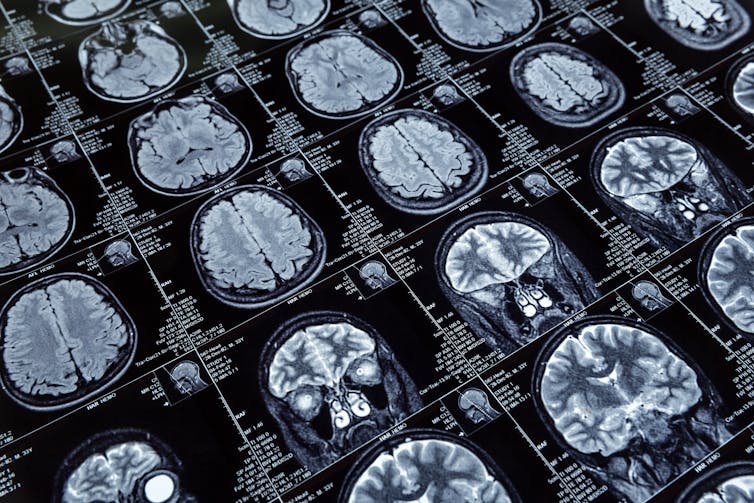A headache is not from your brain itself hurting, but it might mean some of the muscles, membranes and tissues surrounding the brain or its blood supply system could be hurting. Shutterstock.

David Farmer, Florey Institute of Neuroscience and Mental Health
Curious Kids is a series for children. If you have a question you’d like an expert to answer, send it to curiouskids@theconversation.edu.au You might also like the podcast Imagine This, a co-production between ABC KIDS listen and The Conversation, based on Curious Kids.
What is a headache? Is it our brain hurting? – Question from the students of Ms Young’s Grade 5/6 class, Baden Powell College, Victoria.
Scientists and doctors define “a headache” as a situation in which your “head” “aches”.
Sorry for getting technical right off the bat, but that’s the simple answer.
If we look a little deeper, things get very interesting: an ache is a kind of pain, but what is pain? And more importantly, why is it happening to your head?
A closer look at pain
Pain is the brain’s way of telling you that things are bad for you. For example, a hot stove or a slammed door can damage your skin and muscle. If you, say, burn your finger or slam a door on it, information about the damage is sent to your brain.
When it arrives there you will, unfortunately, experience it as pain.
As most of us know, pain feels terrible, but it is actually very useful. It is the brain’s way of convincing you not to do things that can hurt you.
“Come on, mate,” you whisper, rubbing your temples, “get to the headaches already.”
Brain pain?
The brain itself (that is, the thinking bits of it) can’t sense damage the way your fingers can. To my knowledge, nobody has accidentally burned their brain on a hot stove, so we can’t ask them what it feels like (as always, do not try this at home, or anywhere else for that matter).
However, we do know that we can poke or even cut a brain and it won’t feel painful to the person. We know this because people can have brain surgery while they are totally awake.
In fact, this is the safest way to do it. That said, I’m sure we can agree that having someone perform surgery on your brain (hopefully, a surgeon) while they also chat to you about the weather is probably a very weird experience.
“Come on, David!” you whisper, grimacing against the light as your patience frays and your headache intensifies. “If the brain can’t sense injury, then why does my head hurt?”
The brain itself can’t sense injury, but do you know what can? The muscles and membranes that surround the brain, and the veins and arteries that run through the brain.
These near-brain but not-brain things can experience things like irritation, inflammation or dehydration. If they do, your brain will interpret this information as pain that is happening inside your head, and so you experience a headache.
This irritation, inflammation or dehydration could occur because you are getting sick, or have banged your head, or spent a hot day in the sun without drinking enough water.
If you do have a headache, it is a good idea to tell your parents or teacher and then have a lie down in a quiet, dark, cool room. If the pain doesn’t go away after a lie down, you might ask your parents for a trip to the doctor.
Sometimes, for some reason that I don’t understand, people around me seem to get a headache when I talk to them about science things (like headaches) for too long.
In this case, getting rid of a headache is a two-step process in which you first wait for me to go away, and then lie down and wait for the pain to go away as normal.
The first bit of good news is that, if I am not the cause of your headache, you just need to do the lying down part.
The second bit of good news is that this is the last sentence of this article about headaches and the headache-inducing nature of pain.
David Farmer is the brains (pun absolutely intended) behind the Melbourne Comedy Festival show “Why You’re Not Dead Yet” which is all about brain function.
Hello, curious kids! Have you got a question you’d like an expert to answer? Ask an adult to send your question to curiouskids@theconversation.edu.au

Please tell us your name, age and which city you live in. We won’t be able to answer every question but we will do our best.![]()
David Farmer, Senior Research Officer, Florey Institute of Neuroscience and Mental Health
This article is republished from The Conversation under a Creative Commons license. Read the original article.









